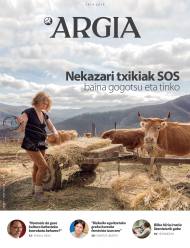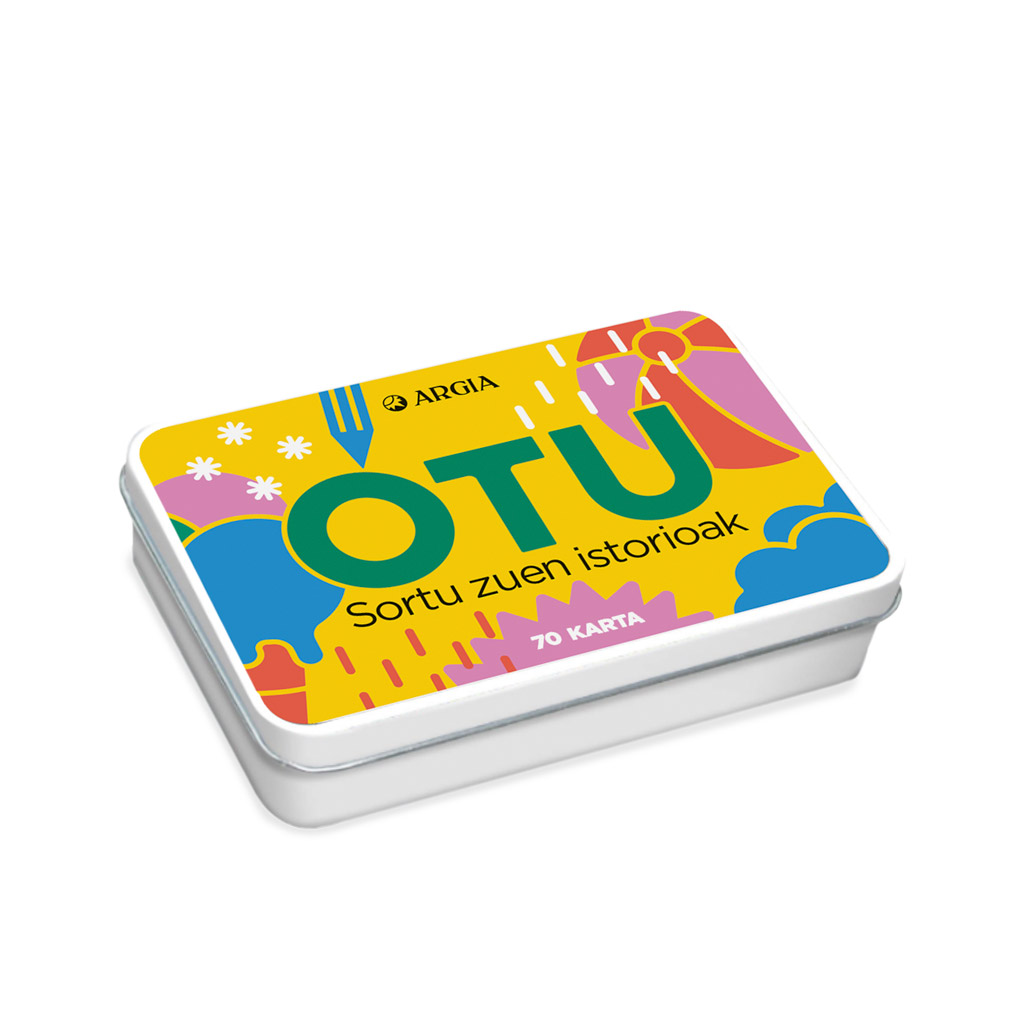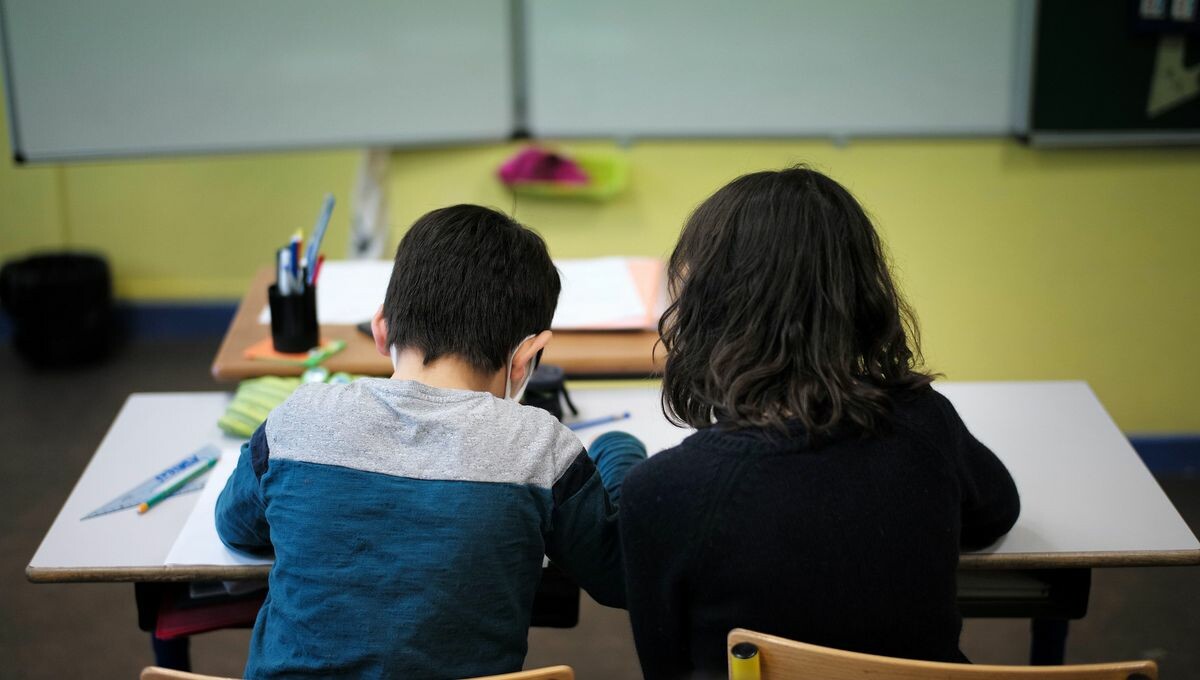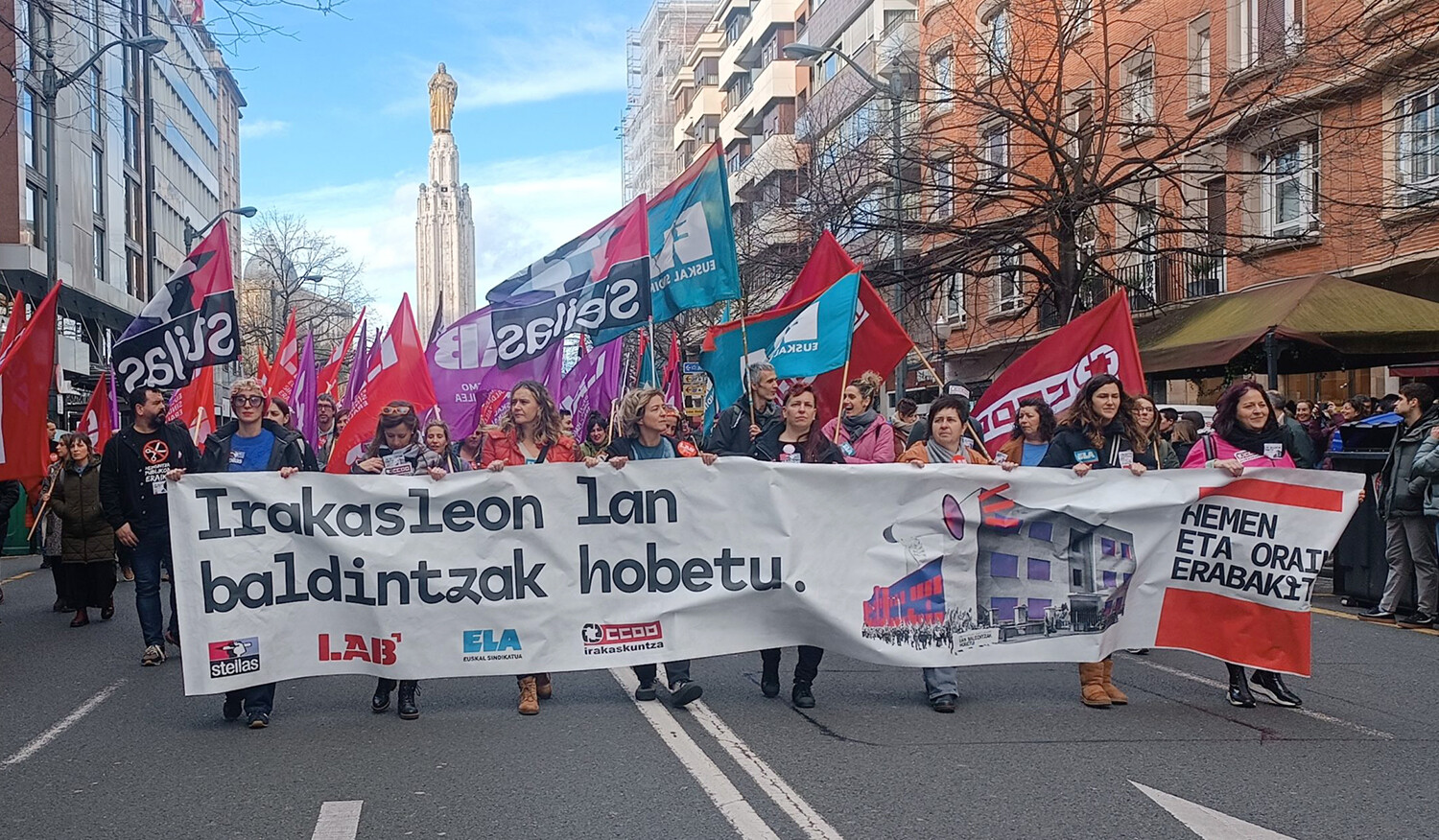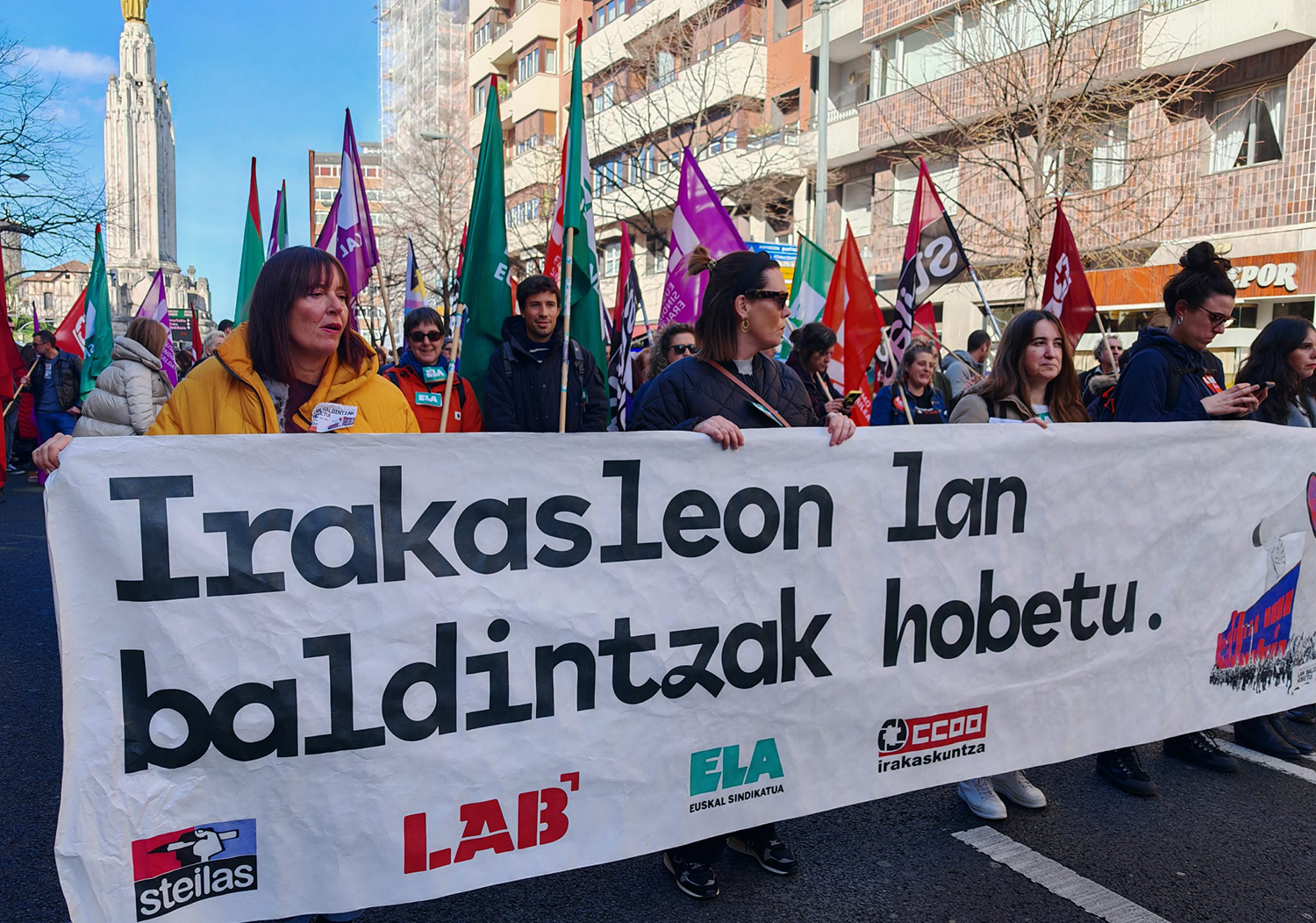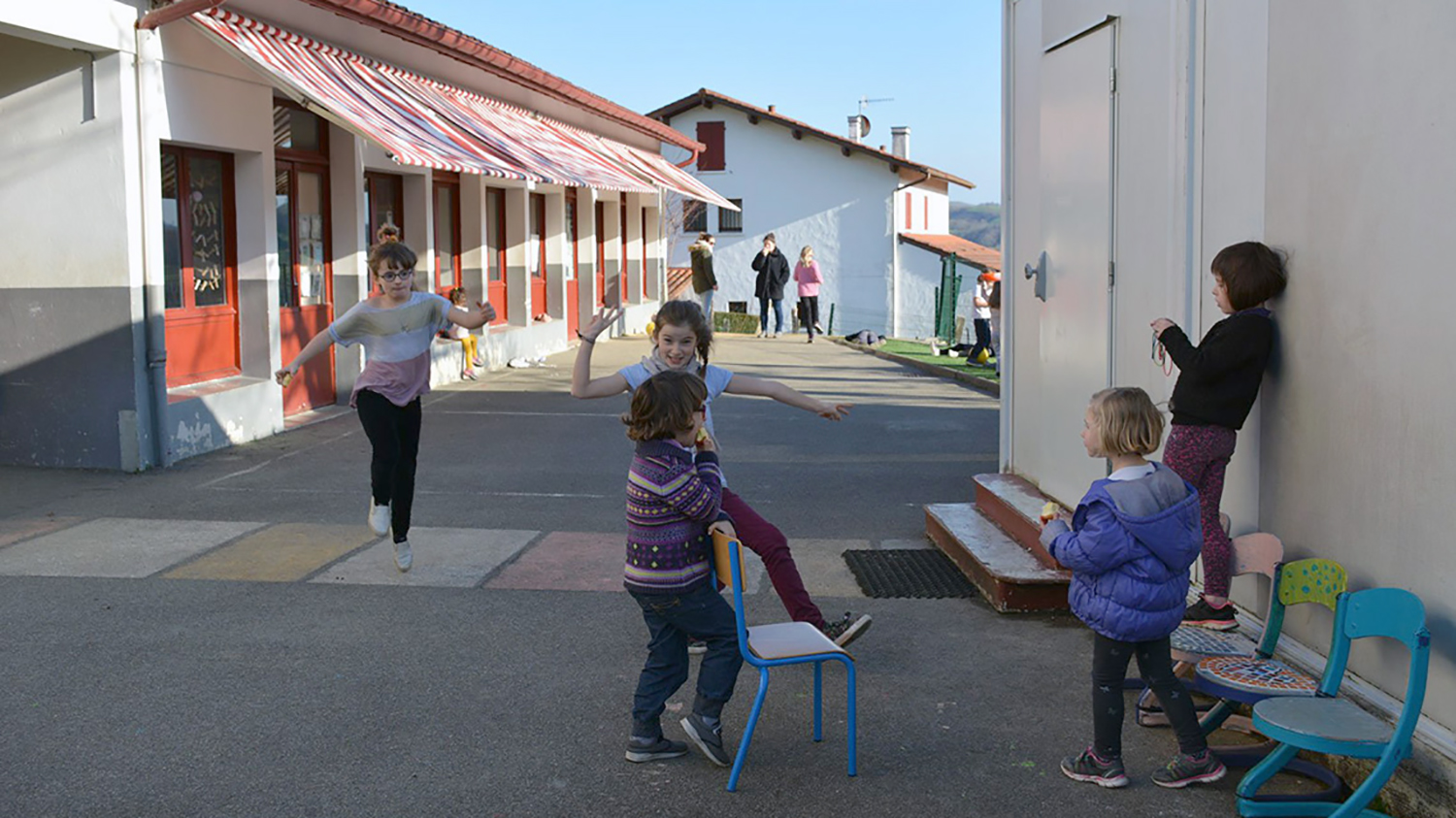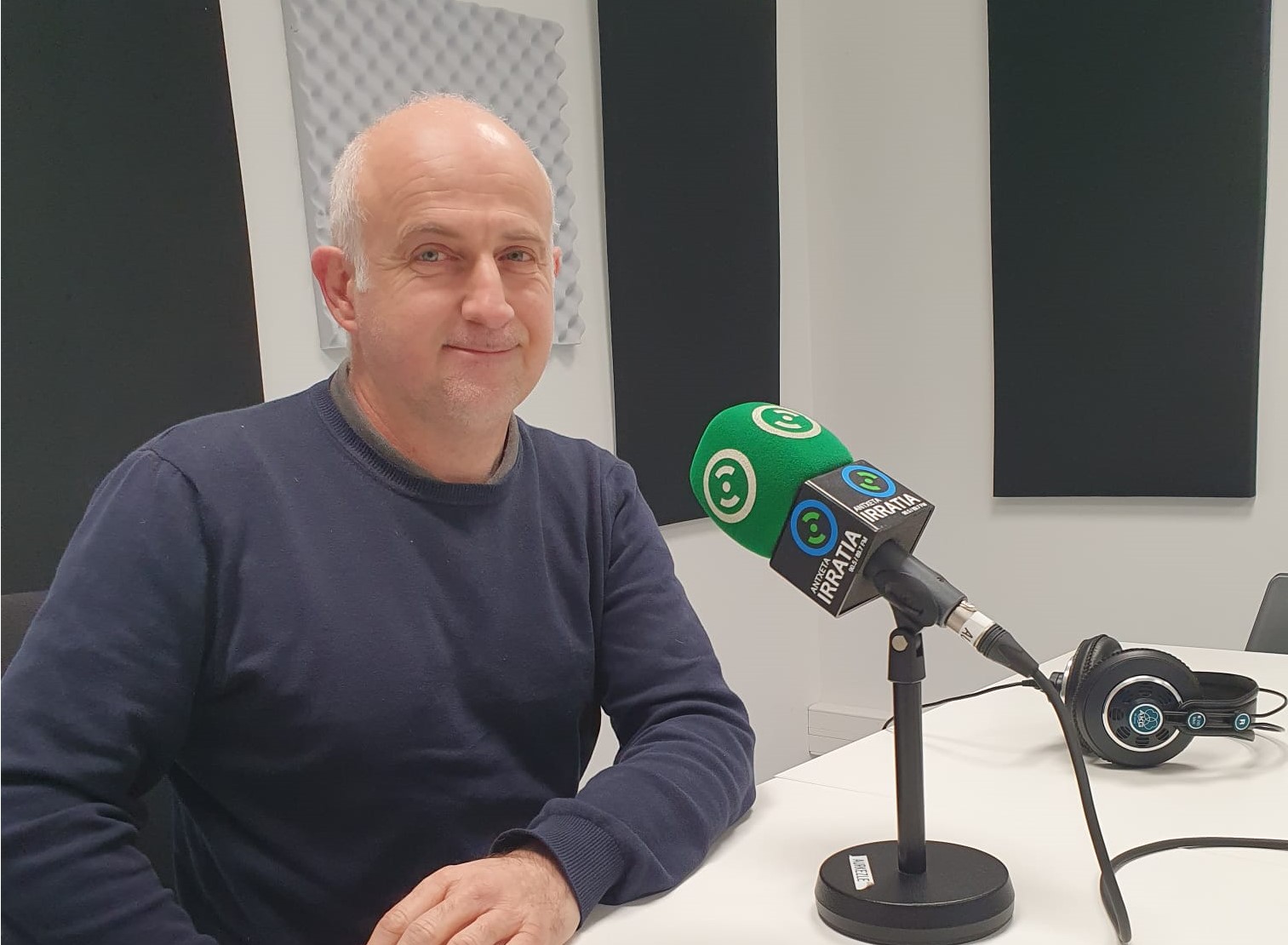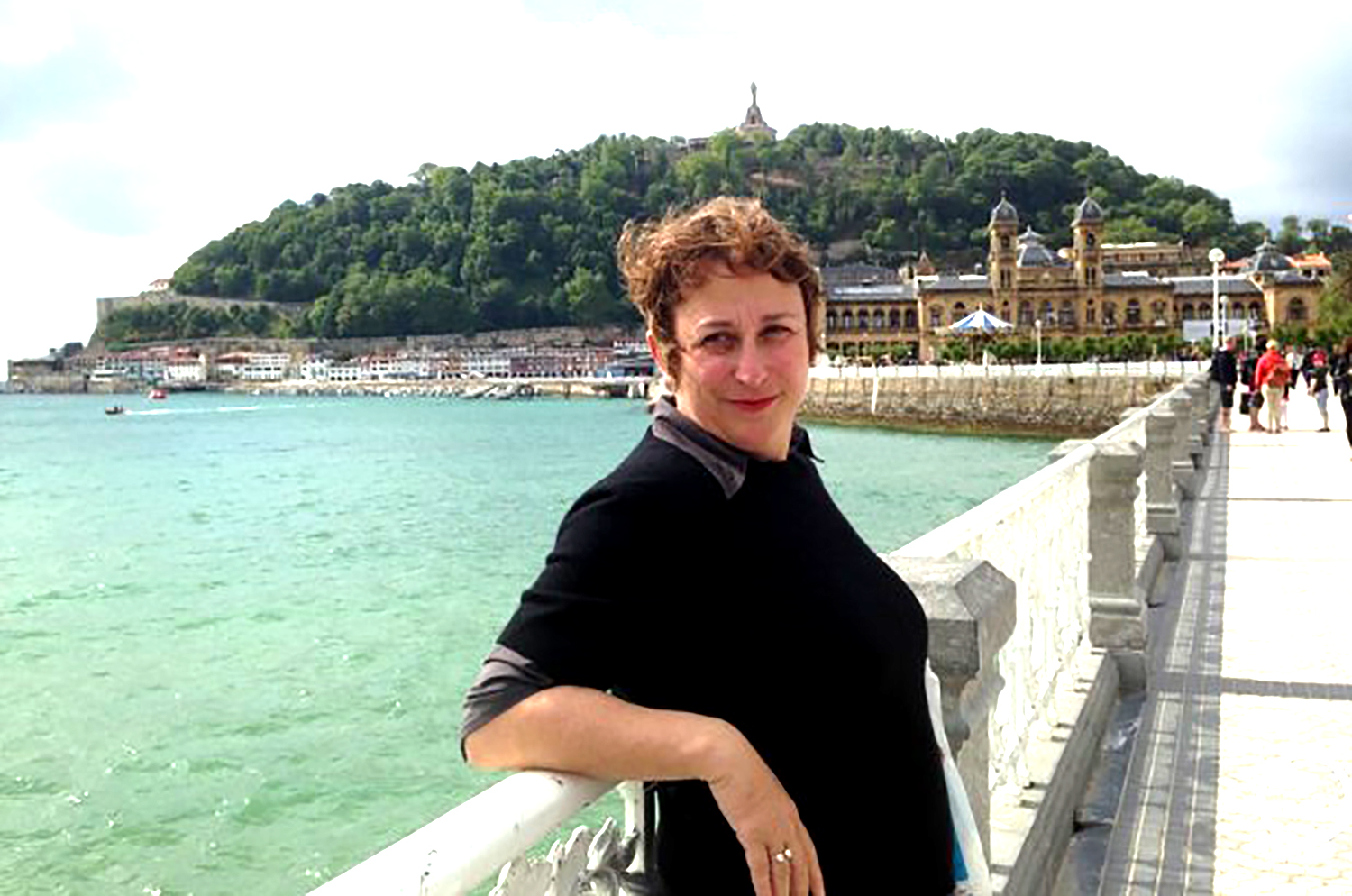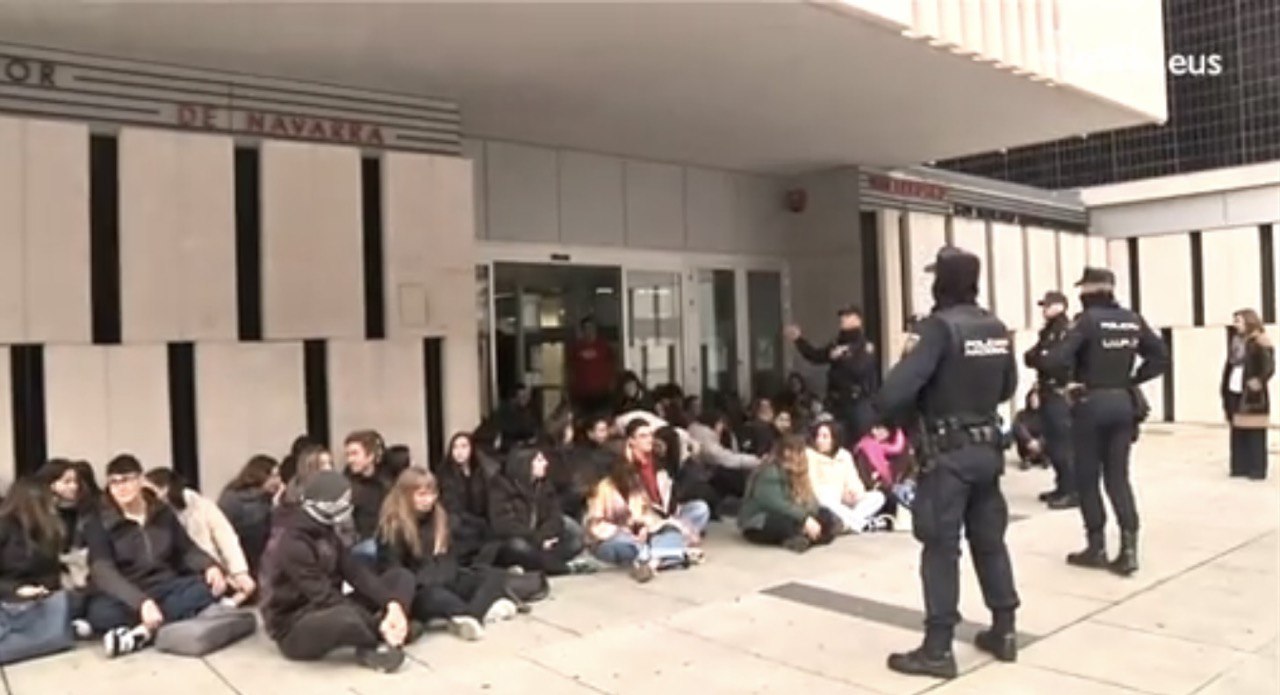"All the elect support SEASKA, we have won that battle."
- Paxkal Indo has received us in Baigorri, at home, and we have talked about themes that are of great importance in his life: music, about the different corners of the Basque Country, about the SEASKA ikastolas. Suddenly, he pointed out that he also likes photography and added: “I’ve done a lot and I’ve done it yet.” Because for him there are no dreams, “only projects of the following days”.
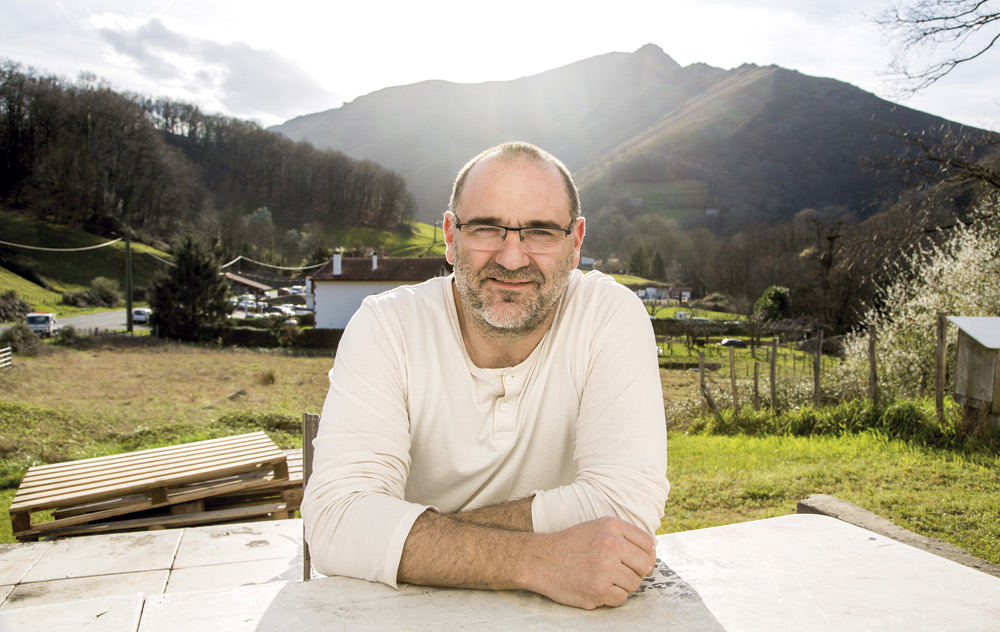
Musikaria. Gaur egun, BBAX taldeko kidea da, eta besteak beste, ikusgarriak egiten ditu Amaia Hennebutterekin batera, Kiribil elkartean. 2008. urteaz geroztik, Seaskako lehendakaria da. ZTK (Iparraldeko musika eta kultura) elkarteaz arduratzen da, eta haurrentzako bi liburu argitaratu ditu bertan.
You are a musician and audiovisual technician, but at home you studied another trade.
I didn't learn anything about formation, nor music, that is, I haven't been educated in either music or any art. And yet, it's my job. I looked at my father's company, which had a printing press, and nothing else. Everyone I've learned has been looking at things, and now that I've been 50 years old, I realize I like to learn like this.
What did they do in the printing press?
The printing press was in San Juan de Luz, so we had to do the menus of the tourist office and the hotels and from time to time we started making some books.
That was the first difficult experiment of my nationalism. Some remember that the Schengen agreement passed and that it broke the borders. Then came the printers from the South to propose their services and all the printers from the North failed. Ours too. At that time we were the only patriotic printers, so we couldn't say anything, and after all it was a consolation. In addition, I had already started making music and wanted to make music…
You started playing in musical groups, right?
Yeah, think about it, in 1988, I was 20 years old, just creating that movement called the Basque Radical Rock. We were in the age of hearing it, and of course we were completely immersed in it. Our first team was in 86-87.
With this movement, you created the ZTK association.
Yes, it's 88. Interestingly, Iparralde's groups couldn't play in Iparralde, it was almost easier to play in Mondragon's gaztetxe than in an association here. We made a partnership for two things: to promote each other and to mutualize the material; we bought the sound and the equipment together. Then the opportunity has come to make books and records: there were needs, and we said so.
You have published many illustrated books on ZTK. Is there any special reason for this?
I think with pleasure, on the one hand, and on the other, because I am a militant of the Basque dialects. There were no illustrated books in the dialects of Iparralde, or little, and then, quite simply, we've tried to do it. I believe that we must ensure that all the dialects are maintained as best as possible, because the wealth of the Basque Country belongs to me. We are aware of how easy and how quickly a language is weakened and how soon it loses its essence. You only have to look at French television, there are bad broadcasts, there you get to know how many young people in a house, just in case. I'm not going to go into whether those young people are stupid, what surprises me is that they live with 500 words, and it's not stupidity, they're not given the chance to learn more than those words.
If one word is given to designate one thing, how poor the world is, and I hope that every thing needs at least four, five or six words, and that each one chooses. That's the strength of the dialects. In Bizkaia, in Zuberoa, here in Lower Navarre, or in Tudela, I hope there will be four words to say one thing and what wealth that is.
In some discourses, dialects and unified Euskera are considered opposites. What do you think?
I don't think there's any problem with that, Euskera has always been plural, it's always been different in the counties, and whoever wants to understand it. And some will not be able to understand each other even if they speak an identical language. I have always supported the united, and we need it. At least to write, we need rules, of course, but I consider myself an artist, and I think it's a flip flop, a kick, a dove. After all, we should not lay down rules if we all continue down the same path, but then we are no longer human, we are sheep. I think it is my role to be part of baptism, but not my lover.
Let's go back to the publications of the ZTK association. I listened to him at a conference on the work of editor, and so I understood, the goal of partnership is not to make money.
It's not all that. Our real goal is to bring the project to the end, and to bring the project to the store, if it's then sold or not in the store, is not our story. If it's sold, well, it's never happened, but if it was sold -- [laughter].
"Therefore, the objective of the ZTK association is to participate in this normalization of the Basque Country, that is, to produce those books that will not be sold"
You are not against making money.
No, we are not against it, but it is not the objective. There is also a history of the Basque militancy. We have a curious word, which is called normalization. What is standardization? Is it normal to have to fight to protect, to advance and to defend our culture? Is it normal for us to have to justify our culture in order to obtain two kinds of resources? No. Standardization has one curious thing: we want to be normal, and what does that mean? We also have to take out as many books as we can a year. One example of this is the Durango Fair. How many new things have come out this year? One stack, about 400. And who knows how many interesting things are there? Almost all of them. And who will sell it? A dozen. After all, we are working on standardisation in Euskera, but we are already normal, that is, there are no works with much interest and many works of common interest are sold. Therefore, the ITC's objective is to participate in this standardization, that is, to produce those books that are not going to be sold.
You have been president of SEASKA since 2008. A few weeks ago you celebrated the celebration of the 50th anniversary of the association. How are you?
[Laughter]. It was a perfect evening for me, I had direct relationships with the musicians playing there, so there was some emotion. And another emotion is that I am 50 years old and that I have also been among the first students of SEASKA, and see that this project is still alive, because I live with a lot of emotion, as you can see. We have worked hard for it and we are getting it.

What balance would you do if you were to look at the road in half a century?
If we had been able to make a double road, better, but it could not be done, and so many obstacles have been put in place, it is incredible to achieve what we have achieved. I think that from the South we really cannot know how perversity the French government and the French government, which have been many in the history of the 50s, are acting. From left to right, they are all French, Jacobins, imperialists and colonialists. In addition, there's something terrible. In France, it is easy to think, as in French, that the culture of a Basque is secondary. Although Madrilenian, one may think that the culture of a Biscayan or a Catalan is ancient shit, but the truth is that in Madrid there has not been given “liberté, egalité, fraternité” in all municipalities and as the motto of the Republic. If Egalité is the motto, it means that we are all equal and that my culture is worth yours, and it is.
In addition, if you think cultures can have different levels, then so can human beings. Our daily struggle is to show where, how, from when a bilingual has less culture than a monolingual. How? It is not possible. Knowing something I've said in two languages, how am I going to be the least cultured between the two? Although it may seem strange, this year, at the French public school, they have carried out an exercise in recognition of colonialism. This shows the ideology that is still going on in schools.
Are they more hidden?
The problem is that they're not so frontal, they don't go directly, but it's all maliciously done. They are very paternalistic, they do so with some certainty in themselves. It's very painful. They have an air of contempt for you. It is extraordinary that they can see another such contempt.
In recent years, you have held great protests.
I have spent ten years as a lehendakari and I do not think they have been more conflicting than the others. Two things: first of all, we have the enemy, we know where it is, it's in Paris and it's already there. But at the time I wasn't just in Paris, at the time I was also here, that is, we didn't win on the ground, and today I was. In the last negotiation, Max Brisson and Frédérique Espagnac were the ones who led the battle in Paris, that is, the French right-wing senator and the socialist senator. The senators have led our fight in Paris, so that's a great novelty. And not those of our party, eh! I mean, because people believe that SEASKA is a nationalist movement, and it's not. Seaska, in the North, is a totally apolitical movement, given in our statutes. We are in favour of Euskera, for Euskaldunizar Iparraldea, it is already there. Therefore, today we have any student and any sponsor, such as senators and MPs. We have won this fight: all the local elects fully support us.
Even if it is not Euskaldun?
Even if they are not Euskaldunes. You have simply understood that everything here is Basque, and that if we lose the Basque, we will lose what is Euskaldun. If SEASKA has managed to make this understood, it is already a great deal.
What are SEASKA’s priorities for the future?
We need a law. As the French do not understand how we live, we have to get at least one law to protect our minimum. And we will need a law for the ikastolas and others, as we are working together on a model of linguistic immersion in five languages: Alsatian, Breton, Catalan, Occitan and Euskera.
I see the future with a lot of hope. The bloodletting in Iparralde has been stopped. Today, younger people are Euskaldunifying than in 2010 or 2005, so we can rejoice. If we care about dialects, then we have to cry.
Why?
There, in Urepel, in Banka, in Aldude, every week an old man dies with great knowledge of the Basque Country, and meanwhile, the bilingual children who are created in the ikastola will never have the knowledge of that old Basque. So if you have to cry? No, I think we have to look at things without nostalgia, as they are, and ahead. It is true that we have to guarantee the quality of Euskera, but we must also create a minimum number of Euskaldunes, and not all of them of high quality. I will not say that neither of you work, but that is often the case, so Seaska’s goal is to guarantee quality, but to create as many Euskaldunes as possible in Iparralde.
On the way here we have seen the Etxauzia Palace. Three years ago you started a campaign, “A Basque, a Euro”, to reclaim the building and open it to the public. What is the project?
We continue to reap results and we always dream that Baigorri will recover this castle, and I, for my part, will make a magnificent show with rockets…
Do you make rockets?
Yes, I started about fifteen years ago.
What's that like?
We did a show in Zuberoa, Itaula, and I made the knowledge with a rocket from around Bordeaux and picked me up straight away. The story of the rocket has everything for me: it has rhythm, it has colors, it has terrible noise, which I love, and it has one simple thing: danger. It's not an easy art, you have to be it in its entirety, one hundred percent.
I'm very lucky. All rockets operating in France work with Chinese material, but, although many people know, in Álava there is a company called Pirotecnia Valecea. They are Aitor and José Valdecantos, from here, living in Vitoria, a fifth generation of rocket creators, and they make everything. I have already started working with them and I am selling material throughout Europe. We are assembling a pyrotechnics from Euskal Herria, there too I am working my unit from Euskal Herria, unintentionally: that the tubes come from Hernani, everything else from Álava… I have found everything I needed in the work of rockets. I know that when I leave Seaska, that will be my job.
Are you going to leave the crib?
Yes, in June. There you have the first one, nobody knows.
Seaska Sarean inklusio egoeran dauden 165 ikasleei laguntza bermatzeko hasi dute kanpaina, antolaketa propioa eratuta. Frantziako Hezkuntza Ministerioaren jarrera salatu dute kanpaina aurkezteko prentsaurrekoan, behar bereziak dituzten haurren inklusiorako baliabide... [+]
Aiaraldeko hainbat irakaslek mezua igorri diete ikasleen guraso eta familiei, dagoen informazio zurrunbiloan, grebarako arrazoiak modu pertsonalean azaltzeak euren borroka eta lanuztea hobeto ulertzeko balioko dielakoan.
Grebaren bezperan Hezkuntza Sailak “edukirik gabeko” mahaia deitu zuela eta sindikatu deitzaileak “errespetatu gabe” akordioa “antzezteko” gutxiengoa duten sindikatuak “erabili” nahi izan zituela salatu ostean, beste bi greba... [+]
Eric Etxartek Seaskako lehendakarikide ardura hartu berri du urte hatsarrean, Antton Etxeberri eta Sophie Layusekin batera. Peio Jorajuriaren lekukoa hartu dute hirurek, eta Lehendakarikidetza taldea osatu dute.
The SEASKA federation has been able to enter the programme with a hundred more students than last year. With two-year-olds joining in the coming months, the limit of 4,300 pupils will be exceeded. In the first year, the increase is 33 students, but the most outstanding is the... [+]









